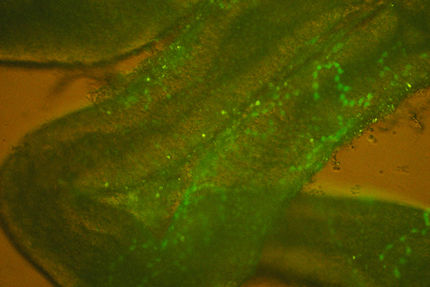Affymetrix Microarrays Uncover Genetic Mutations in Embryonic Stem Cells Approved for Federally-Funded Research
Advertisement
Affymetrix Inc. announced that a research group led by scientists at Johns Hopkins School of medicine and the NIH used Affymetrix GeneChip(R) microarrays to discover that eight of the stem cell lines approved for federally-funded research have mutated, raising concern about the use of the remaining 14 approved cell lines in future research or therapeutic applications. The researchers used two GeneChip microarrays to scan the stem cell genome at a level of detail never before possible. They found previously undetectable mutations in stem cells that had been grown in the laboratory for dozens of generations. The results of their study are published in Nature genetics.
The cell lines discovered as mutant in this study are part of the limited number of existing human embryonic stem cell lines (hESC) approved by President Bush for federally-funded research in August 2001. At the time, scientists estimated that more than 60 genetically distinct stem cell lines existed, but today only 22 are available for purchase in federally-supported research.
To find the embryonic stem cell mutations, the group used three different analysis methods -- two of them microarrays -- to compare the genomes of early generation and late generation cells. The researchers looked at human nuclear DNA for mutations using the Mapping 100K Set; they used the Human Mitochondrial Resequencing Array 2.0 to look for mutations in mitochondrial DNA. By combining two different whole-genome microarray experiments with a complementary technology that focused on a handful of individual genes, the stem cell group was able to explore the genome in many different ways that together proved far more effective than any single approach.
"Of note, given that genomic alterations in hESC lines tend to accrue over time in tissue culture, it does not detract from the therapeutic potential of earlier passage lines, which appear to be largely free of such measurable changes," commented the authors of the Nature Genetics publication. "Our findings, instead, mandate periodic monitoring of hESC lines for various types of genomic mutations using well-defined assays, especially for changes that are likely to affect cellular phenotype. Finally, given the evidence for clonal aberrations in later passages, it is likely that the limited repository sanctioned for federally funded research might further deplete over time."

















































